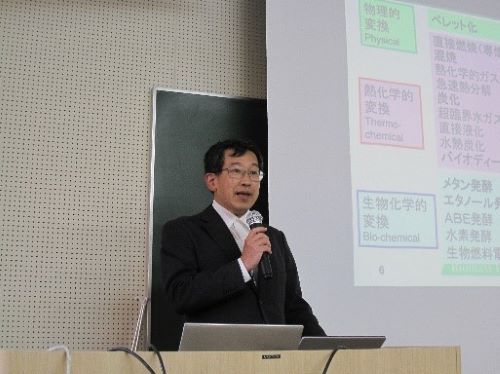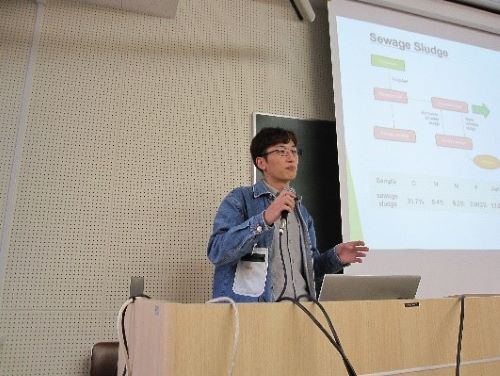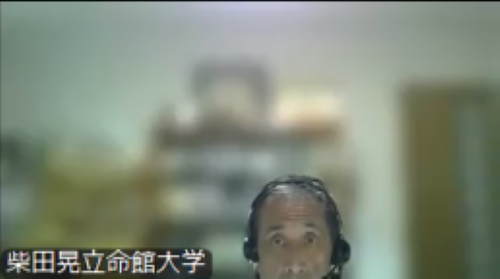HOSTY Association (Graduate School of Advanced Science and Engineering)
Email: bprc*hiroshima-u.ac.jp (Please replace*with @)
Date & Time: Nov. 8, 2024
Program
Commentary: Yukihiko MATSUMURA
Professor, Graduate School of Advanced Science and Engineering, Hiroshima University

Lecture: Zihao HE
M2, Graduate School of Innovation and Practice for Smart Society, Hiroshima University
“Recovery System for Phosphorus in Supercritical Water Gasification of Sewage Sludge”
Supercritical water gasification (SCWG) can directly convert sewage sludge to high-value gas without a pre-dewatering process, which can save a lot of energy. The world is facing critical challenges from global warming and the depletion of fossil fuel reserves. Approximately 90% of the phosphorus in daily wastewater accumulates in sewage sludge. Phosphorus is a non-renewable resource in the short term due to extensive mining and consumption, making its scarcity a growing global concern. As phosphorus is essential for both industrial processes and agriculture, the declining availability and quality of phosphate rock, coupled with rising prices, underscores the urgent need to identify alternative sources for producing phosphate fertilizers to support sustainable agricultural practices. This study to investigate the possibility of using a recovery system to recover phosphorus through supercritical water gasification. Considering that phosphorus precipitates as solid particles in supercritical water, a recovery system was developed, and experiments were conducted.

Lecture: Akira SHIBATA
Director, Japan Biochar Research Center, Ritsumeikan University
Managing Director, Japan Coolvege Association
Secretary General of Japan Carbonization Research Society
“CO2 Removal Using Biochar and Rural Development”
In recent years, Carbon Capture and storage, or Sequestration (CCS) has been attracting attention as a Carbon Dioxide Removal (CDR) in carbon dioxide reduction activities. This is because it is impossible to achieve zero carbon emissions by 2050 simply by reducing fossil fuel consumption, and carbon dioxide removal is essential. As one of the methodologies of CCS, CDR using biochar is in the spotlight worldwide. This method is relatively easy for anyone to implement without large capital investment and can contribute to agricultural productivity, and the significance and approach based on the social implementation of this method will be explained.

Chair: Yukihiko MATSUMURA
Professor, Graduate School of Advanced Science and Engineering, Hiroshima University

 Home
Home














